
Job description
I am a fire debris analyst for a private forensic lab in the Sacramento area. My job primarily entails analyzing the headspace of fire debris samples by concentrating the vapors onto a carbon strip, eluting the strip, then analyzing the eluent by GCMS and comparing to a wide array of standards to try and identify any identifiable ignitable liquid according to ASTM E1618. I also analyze samples for PUFAs, which are known to spontaneously heat by a solvent extraction and a similar GCMS process according to ASTM E2881.
Why did you choose this program?
My father was a Chemist and pushed me into the program, so I'm not sure I chose it for myself, but I can explain why I stayed. I am a curious person looking to take things to first principles. I like to problem solve and I enjoy challenges. I was a big Sherlock Holmes fan growing up, and I careful reading indicates he is likely a Chemist. I am fascinated by science fiction and my favorite superhero is Spiderman, and Peter Parker is a Chemist. I've continued to give my life to Chemistry because I find the people who study it to be interesting, I find the subject extremely deep and profound, and I personally find it to have a more significant impact than other STEM degrees, or other degrees as a whole. Chemistry, in a practical sense, is the manipulation of the physical world but on a scale that require careful thought, a creative imagination and an integration of our personal intelligence and technology. The interaction of computation and Chemistry is fascinating and I was always drawn to that aspect personally.
How did this program prepare you for your job?
Humboldt State, now Cal Poly Humboldt, is a wonderful place to go to college in general, but a fantastic location for studying Chemistry. I never found the labs too crowded or the lecture halls to packed to not be able to develop a relationship with the professor if I wanted to, or ask a question, or attend office hours. The material presented prepared me, but the high level class offerings in particular changed my life. I took Chem 441, which is class titled "Instrumental Analysis" and it was a continuation of Chem 341, "Quantitative Analysis." The professors at the time, Dr. Hurst and Dr. Till walked the class through many different instruments including GCMS, which I now use daily. They allowed us to perform additional experiments that served to stoke my developing interest in analytical Chemistry.
What did you enjoy most about the program?
The people. My classmates still stay in touch and we love to discuss our careers. Seeing my peers shotgun-blast out of the university into the professional/academic world has made me so proud and I am so happy for them. So many talented people and I love to see their love for Chemistry. My teachers made a lasting impact on them and I'm so grateful. Out of many, I'd like to mention a few. Dr. Hurst was my advisor and carefully managed my journey. He was also so gentle guiding me through a difficult program considering my personal challenges. Dr. Till made analytical Chemistry so exciting, and noticed and encouraged my enthusiasm. She told me that she thought I would enjoy grad school and she was absolutely right, and deciding factor in my deciding to apply to a M.S. program. Dr. Harmon developed a fascinating and thorough physical Chemistry tutorial course in Mathematica and Igor, two software programs that require the development of coding knowledge and I really appreciate his forward thinking decisiveness in integrating it in a 1:1 ratio to lecturing. This decision sparked a long interest in me regarding the synergistic energy of computer science and Chemistry and the potential for growth in this realm.
What would you say to prospective students who are thinking about applying to this program?
Do it! How exciting that you have the autonomy to choose! Chemistry is an appealing major to potential employers and like any great challenge, the value is in the difficulty. Not all degrees are created equal and I encourage you to choose Chemistry if you demand to know how things work, not through metaphors or simplifications or surface level discussions over a broad range of important topics. Some other similar majors are, to me, don't posses the immediate practical function that a bachelors degree in Chemistry is. You're going to get your hands on some great reactions and play with fire and handle fuming acid and wear a lab coat and make crystals and then apply to theory to important problems...all within the boundary of Humboldt State and specifically Science A! Succinctly, this degree does not yield to an individual skillset. This is how the real world works. Unlike some other majors, you'll be forced to develop skills in spatial reasoning, imagination, memorization, high-level math, computer literacy, algebra, unit analysis, steady handedness, time management, social skills, public speaking, resource management...all of these will be required and I applaud your for engaging in possibly the most rewarding major possible in terms of personal development.
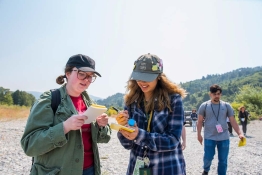
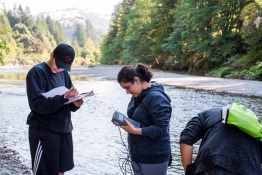
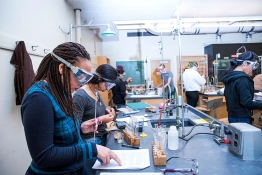
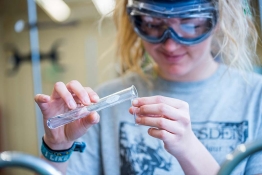
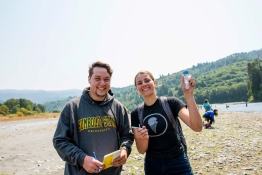
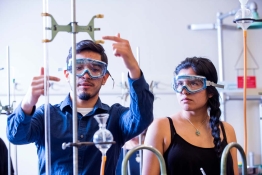
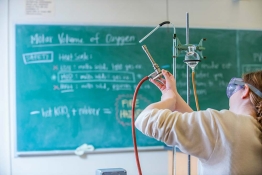
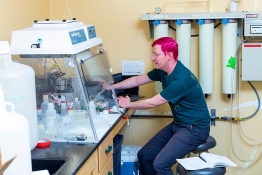
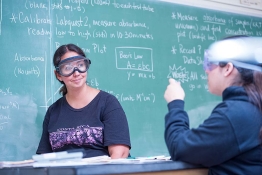
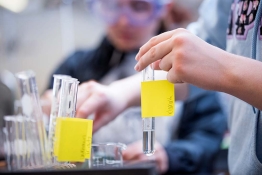

Other comments?
I currently attend Sacramento State University studying for my M.S. in Chemistry. It is a thesis based graduate program and my proposed thesis is titled "Chemometric-based machine learning to characterize self-heating polyunsaturated fatty acids in fire debris for forensic identification according to the methodology of ASTM E-2881." Sacramento State has generously allowed me to cross study in the graduate computer science department and I have learned how to build and tune neural networks, a deep learning machine intelligence model that I use to classify fire debris for PUFAs. I plan to graduate Spring of 2023.